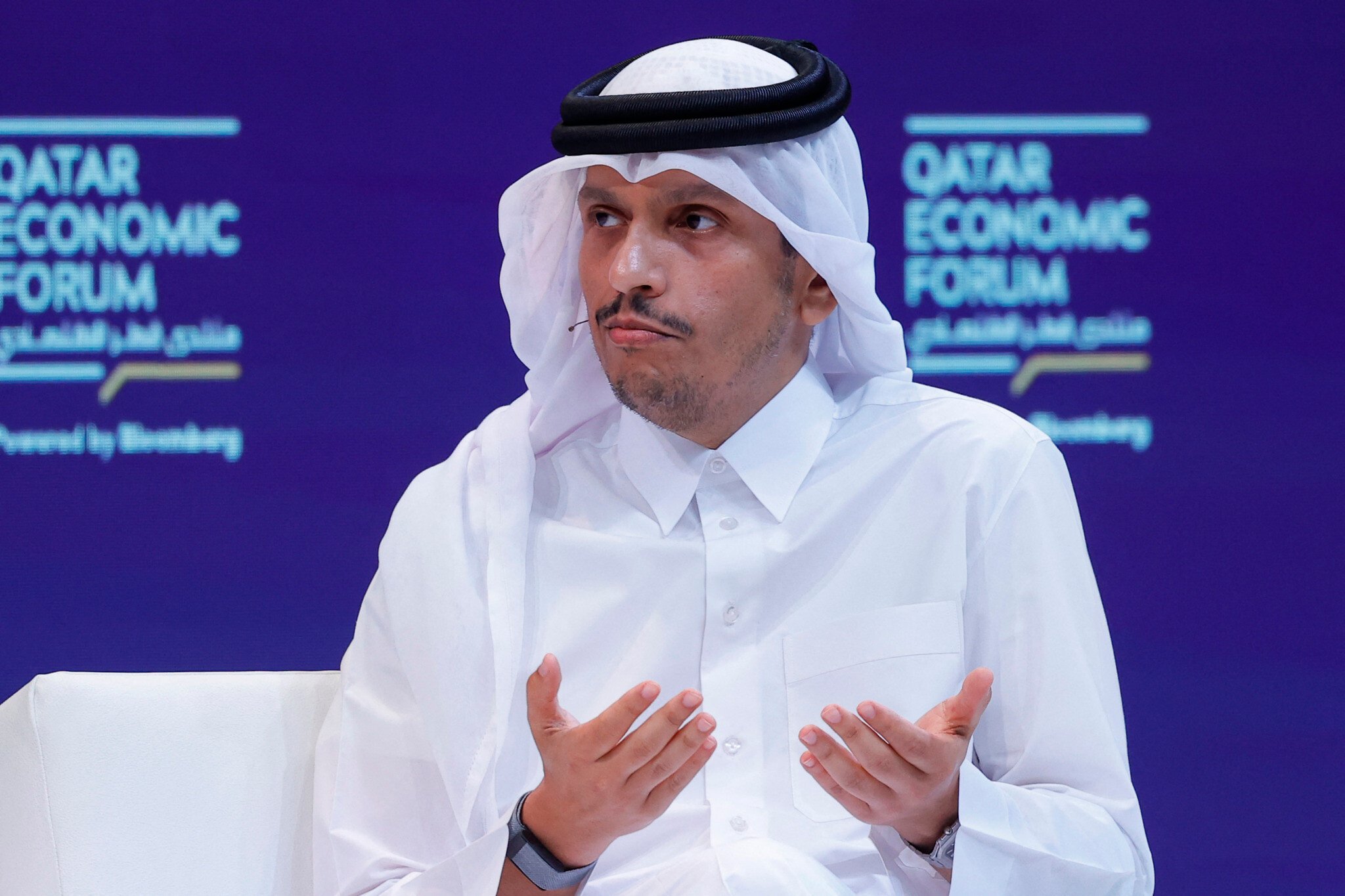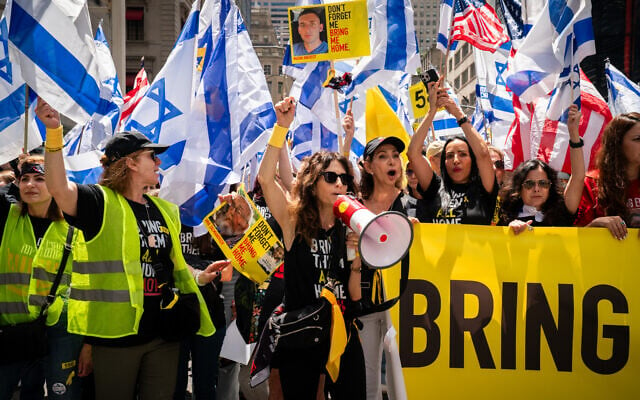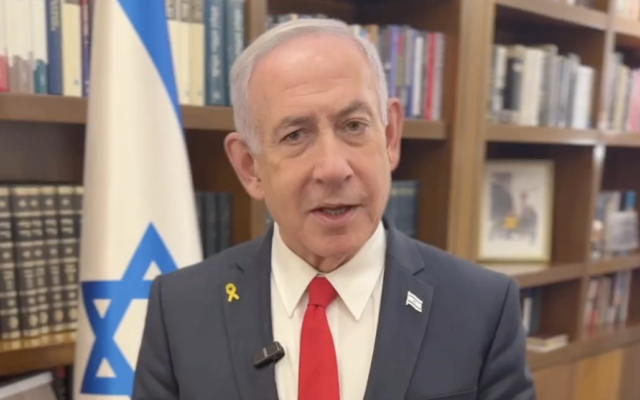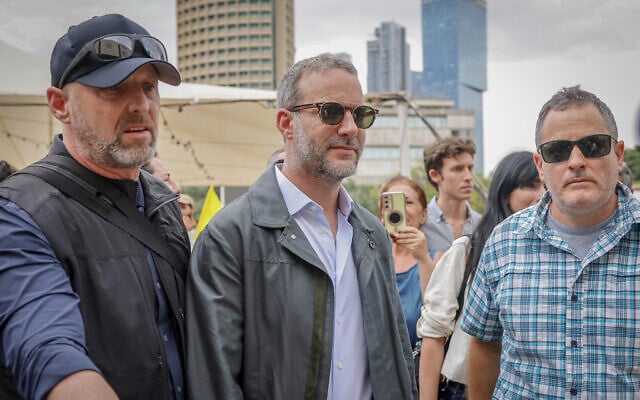



Qatar’s prime minister said Tuesday that ongoing ceasefire and hostage deal negotiations in Doha between Hamas and Israel have stalled over “fundamental differences” between the two sides, as Prime Minister Benjamin Netanyahu is reportedly weighing recalling Israel’s delegation from the talks.
Speaking at the Qatar Economic Forum, Sheikh Mohammed bin Abdulrahman al-Thani said that Israel’s expanded military offensive in Gaza had undermined peace efforts.
“When Israeli-American soldier Edan Alexander was released, we thought that moment would open a door to end this tragedy, but the response was a more violent wave of strikes,” he said. “This irresponsible, aggressive behavior undermines any potential chance for peace.”
The Qatari leader said that over the past couple of weeks, negotiations in Doha “didn’t lead us anywhere yet, because there is a fundamental difference between the two parties.”
“One party is looking for a partial deal that might… lead to a comprehensive deal, and the other party is looking just for a one-off deal… and to end the war and to get all the hostages out,” he said, without clarifying which side he was referring to with each part of his statement. “We couldn’t bridge this fundamental gap.”
Hebrew media outlets reported Monday evening that Netanyahu had ordered Israel’s negotiation team to remain in Doha for at least another day, despite the impasse in hostage talks, in order to show the US that it was making an effort.
“We’re staying in order not to offend the United States. It won’t look good if Israel leaves Doha before Hamas,” an Israeli official told the Kan public broadcaster.
Channel 13 news cited an unnamed official who said Netanyahu made the decision in order to try to demonstrate that Israel is not the obstacle in the talks.
But Kan reported Tuesday morning that Netanyahu was considering bringing the delegation home that same day if there was no breakthrough in talks.
On Monday, the White House press secretary told reporters that US President Donald Trump “has made it very clear he wants to see this conflict in the region end.”
White House Press Secretary Karoline Leavitt said that “the president is moving as quickly as he possibly can and working overtime to end these conflicts in both Israel and Gaza and also the Russia-Ukraine war,” adding that “the president made it very clear to Hamas that he wanted to see all hostages released.”
Netanyahu said publicly for the first time on Sunday that he has mandated his negotiators to discuss ending the war, but only if Hamas agrees to disarm and have its leaders go into exile — conditions that the terror group has said it will not accept.
Responding Monday night to a joint threat issued by Canada, France and the UK, Netanyahu said that “the war can end tomorrow if the remaining hostages are released, Hamas lays down its arms, its murderous leaders are exiled and Gaza is demilitarized. No nation can be expected to accept anything less and Israel certainly won’t.”
Talks were being held as the Israel Defense Force ramped up a new military offensive in Gaza aimed at seizing most of the Strip. The fighting was likely to significantly expand should the talks fail.
Israeli and Hamas delegations have spent several days in Qatar’s capital Doha, as has US special envoy Steve Witkoff, with talks convening after Alexander’s release from captivity in a “goodwill gesture” by Hamas to the US.
Axios reported, however, that the negotiations, in practice, were bypassing the Gulf state, with an Israeli official calling the talks in Doha a “facade.”
Speaking Monday at The Jerusalem Post Conference in New York, US hostage envoy Adam Boehler declined to comment on the status of negotiations, but said that, in general, “we’re closer than we ever were, and part of that is because of movement that the IDF and Israel did on the ground.”
Boehler stressed that “the main force holding back a deal is Hamas,” and that the terms for the deal have become “tighter and tighter because they need to understand the longer they wait, there’s a cost.”
Asked if he is optimistic about a deal, Boehler said: “I think that as time goes on, we have increased in strength… I think the odds go up.”
He also indicated the US could hold further direct talks with the Hamas terror group.
“It’s getting closer and closer to being the right time to make a deal,” he says. “If Hamas wants to come forward and make a very legitimate offer that they’re willing to stand by and release hostages, we’re always willing to listen to that.”
Luke Tress contributed to this report.



